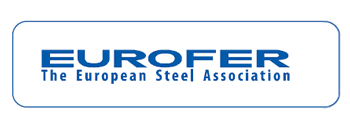Brussels, 17 February 2018 – President Trump has been handed the Section 232 report on steel imports into the United States. The Section 232 report, commissioned in April 2017, is the result of US legislation permitting import restrictions to be imposed on national security grounds. The European Steel Association (EUROFER) warns that deployment of blanket trade restrictions will almost certainly be contested by other WTO countries. It will spark prompt retaliation alongside action from the EU to safeguard the Internal Market from the ensuing trade deflection.

The two alternatives presented to the President are for a ‘global’ tariff or quota, or for tariffs on a ‘subset’ of countries. The ‘global’ alternative would see a likely quota of 63% of 2017 import levels or a tariff of 24% applied on all countries and possibly all steel products. The country-specific ‘subset’ alternative would see tariffs on a list of named countries: Brazil, South Korea, Russia, Turkey, India, Vietnam, China, Thailand, South Africa, Egypt, Malaysia and Costa Rica, with all other countries limited to 100% of their 2017 import level.
“The EU steel industry has long been a reliable supplier of high quality steels to the US, sending just over three million tonnes of steel there in the first eleven months of 2017. The EU and US are close partners and NATO allies,” said Axel Eggert, Director General of EUROFER. “Any restriction on steel imports from the EU based on Section 232 would undermine this partnership”.
“EU and US producers have both been suffering financial losses and closures since the Financial Crisis caused by trade distortions from third countries”, sympathised Mr Eggert. “Import pressures have significantly affected each market. Until now, both have used targeted trade remedies against demonstrably dumped steel products from third countries – and the EU and US are active members on the G20 Forum on Steel Excess Capacity. We are committed to work with the US and other countries to swiftly eliminate the source of these distortions: global overcapacity. This will not be achieved with scattergun, unilateral measures”.
The European steel industry is concerned that whichever alternative President Trump decides to reach for – other than declining to act, as he is also able to – there could be a massive deflection of previously US-bound steel products to the EU’s open market. This could seriously and unfairly injure EU producers, breaking the fragile recovery the sector has seen over the past few months.
“Were either of the two alternatives deployed we would expect swift and vigorous counter action by the EU in order to prevent any potential negative impact on our industry, including necessary safeguard measures mirroring the product scope and types of any US Section 232 trade measures”, emphasised Mr Eggert. “The EU has an arsenal of trade remedies and safeguards available to defend its interests. These can be ready to launch in very short order in response to an economic threat, and EU industry will demand their immediate application”.
“We urge the US President: Do not pull the trigger on a new trade war”, concluded Mr Eggert.
Section 232 report
The Section 232 of the 1962 Trade Expansion Act steel report can be found: here
About the European Steel Association (EUROFER)
EUROFER AISBL is located in Brussels and was founded in 1976. It represents the entirety of steel production in the European Union. EUROFER members are steel companies and national steel federations throughout the EU. The major steel companies and national steel federations in Switzerland and Turkey are associate members.
About the European steel industry
The European steel industry is a world leader in innovation and environmental sustainability. It has a turnover of around €170 billion and directly employs 320,000 highly-skilled people, producing on average 160 million tonnes of steel per year. More than 500 steel production sites across 22 EU Member States provide direct and indirect employment to millions more European citizens. Closely integrated with Europe’s manufacturing and construction industries, steel is the backbone for development, growth and employment in Europe.
Steel is the most versatile industrial material in the world. The thousands of different grades and types of steel developed by the industry make the modern world possible. Steel is 100% recyclable and therefore is a fundamental part of the circular economy. As a basic engineering material, steel is also an essential factor in the development and deployment of innovative, CO2-mitigating technologies, improving resource efficiency and fostering sustainable development in Europe.
